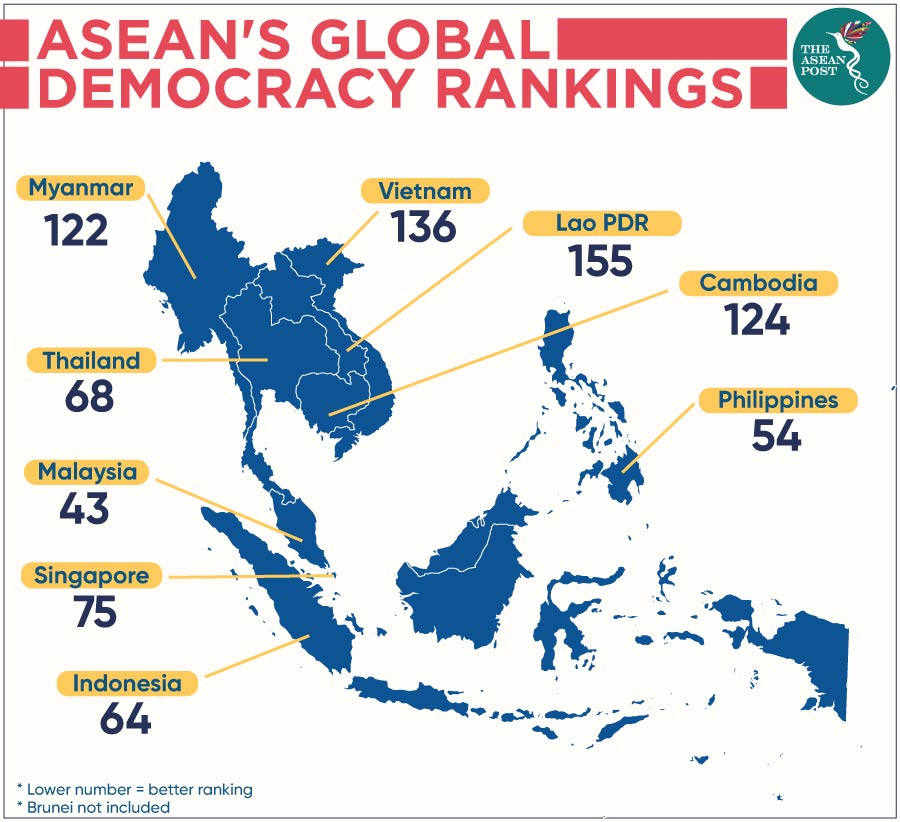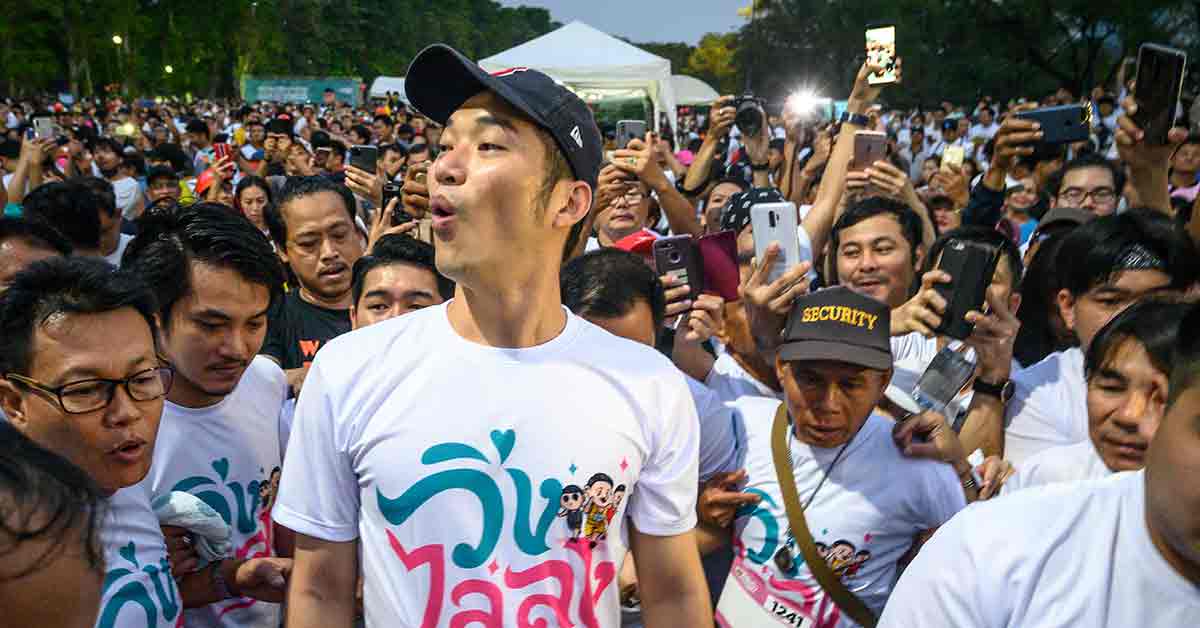The Economist Intelligence Unit's (EIU) 2019 Democracy Index – the 12th edition of the index – saw Thailand’s score jump 38 places in the global rankings to become a "flawed democracy" rather than a "hybrid regime".
The upgrade was obviously due to the long-awaited general election finally being held following the May 2014 military coup.
"The biggest score change in Asia occurred in Thailand, which finally held an election in March 2019, the first since the military coup in May 2014. Voters had a wide array of parties and candidates from which to choose, and this helped to restore some public confidence in the electoral process and the political system," the EIU said.
"The election led to improvements in the scores across all five categories of the Democracy Index, but the sharpest increase was recorded for electoral process and pluralism."
Based on the report released last week, Thailand was ranked 68th out of 167 countries with an overall score of 6.32 out of 10. The country was awarded 7.42 points for electoral process and pluralism, 5.36 for functioning of government, 6.11 for political participation, 6.25 for political culture and 6.47 for civil liberties.
While Thailand managed to make a big leap following the election in March last year, it did not – in the end – perform the best out of all the other ASEAN member countries included in the index.

Flawed democracy
An election finally took place in Thailand, signalling the end of military rule but some quarters believe that remnants of military rule still exist.
The Human Rights Watch (HRW) also recently published its World Report 2020 that takes an in-depth look at events in countries featured in the report that have to do with the protection or violation of human rights. For Thailand, a large amount of focus was given to the military rule and subsequent general election.
“The general election on 24 March, 2019, was held under severe restrictions on civil and political rights. (Thailand) Prime Minister Prayut Chan-o-cha started his second term in July showing the same disregard for human rights that characterised the previous five years of military rule. Impunity for human rights violations continued unabated,” the HRW reported.
The human rights group also noted that as the chief of the National Council for Peace and Order (NCPO) junta, Prayut wielded power from 2014 to 2019 that was unhindered by oversight or accountability. However, while the NCPO disbanded after the new government took office in July, the constitution protects junta members and anyone acting on the junta’s orders from ever being held accountable for human rights violations committed during military rule.
“No redress is available for victims of those rights violations. The government still has not repealed all of the rights-violating NCPO orders.”
Future Forward protests
A survey by Thailand’s National Institute of Development Administration (NIDA) earlier this month named Future Forward Party (FFP) leader Thanathorn Juangroongruangkit “the most suitable person” for the post of Prime Minister and his party as the best party to lead the country. Prayut came in a distant second spot in the poll.
More than 31.2 percent of respondents supported Thanathorn, saying they wanted a new generation to lead the nation. About 23.7 percent supported Prayut, saying he is honest and can help the people. They also said he could help keep the country at peace.
Thanathorn has been organising protests against the government following what he calls the injustice inflicted on him and his party. The first protest was organised just three days after the country’s Election Commission voted to ask the Constitutional Court to dissolve the FFP for alleged campaign finance violations.
Thanathorn has been receiving a lot of support at his anti-government rallies. This was observed when, during his second rally, a concurrent pro-government rally was carried out but the anti-government rally witnessed more participants.
While Thailand’s jump in the EIU’s 2019 Democracy Index is certainly a positive development for the country, it was an expected one following the election. The question the government must ask itself is what it can do to further improve democracy in the country. If the answer to that is to allow more freedoms and to shed the “legacy” the previous military junta left behind, then, the Thai government would be seen as moving in the right direction. Failing to do so could see more Thais, especially the youth, throwing their support behind Thanathorn and the FFP.
Related articles:
